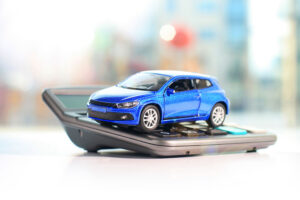Do you ever walk into the cereal section of the supermarket, and just stand there, bamboozled by choice? There are so many types to choose from, it’s next to impossible to decide which one will go into your shopping basket. And this is for cereal, which you’ll go through in a week or two anyway. When it comes to buying something as big as a car, which will cost a huge chunk of cash and be with you for many years, then the stakes are even higher. It’s not something that you want to get wrong. While there are no guarantees in this world, there are things you can do that will increase your chances of ending up with the vehicle that’s right for you.
Below, we take a look at some of these key considerations before visiting a used car dealership.
Your Needs
First thing’s first: before you get too invested into thinking about what you want, it’s best to think about what you need. You will have or should have, a sense of the essentials that you’re looking for in a car. You might need it to comfortably transport a family of people, or for it to be inexpensive, or to be from a manufacturer from a certain country (everyone has their own reasons for everything). You’ll be able to get into the fun things later, but as a starting point, you should be focusing on what you positively can’t do without when it comes to your vehicle — you’ll only regret it if you buy a car that lacks some of the key components you look for.
What You’re Drawn To
As well as your vehicle requirements, it’s also worth thinking about what you’re drawn to. Some people decide to go purely functional when it comes to the car, but there’s always room for a little bit of instinct to be thrown into the mix. If you see a car that makes you do a double-take, then it’ll likely be a good idea to investigate further. When you’re spending so much money on a vehicle, there has to be an element of good old desire thrown into the decision making process. It’s like buying a house. There’ll be plenty of homes that farewell on your checklist of what your property must-have, but there’ll only be that special one that you know is the right one for you.
The Budget
Of course, there are some practical matters to think about when it comes to buying a car. Unless you’re an independently wealthy millionaire, then you’ll need to establish a budget before you begin looking. Some people go into their car-buying process with a vague idea of how much they want to spend, but this rarely works out for the best. What happens is that people end up looking at vehicles at the upper end of how much they said they’d spend, and then another vehicle pops up that they fall in love with — and it’s only marginally more expensive than their budget. They buy, and then realise, hey, they’ve spent more money than they ever intended to. It really is worthwhile taking the time to figure out how much you’re able to spend on your vehicle; as soon as you see a car that is more expensive, you’ll know that it’s out of reach.
Additional Costs
When it comes to the costs involved in your vehicle, it’s important that you’re also keeping the additional costs in mind. Sometimes, these can be significant. It’s not just the sticker price that’ll affect your bank balance, but all the charges related to keeping the car on the road and running smoothly. For example, let’s think about the MPG (miles per gallon). If you have a car that gets poor mileage, then you’ll end up spending a lot more at the pump each month, so check that any car you’re thinking about buying is fuel-efficient first. It’s also worth remembering that some cars are more expensive to repair than others. If you’re going for a niche vehicle, you’ll need to be ready to splash some extra cash should something go wrong, as they’ll be fewer mechanics who can help you, and parts may be harder to source.
The Essential Features
Everyone’s got their own style. For some people, it’s all about the handling of the vehicle. For others, it’s the sleek exterior design that does it for them. Others like to have a roomy interior that has the best infotainment set up. You should try to look for these essential features in any car that you buy. However, while your personal preference will play a large role, you should also think about the broader essentials of a car, especially if you’re buying a used vehicle. Often, people focus on the superficial aspects of the car — the more shallow being the colour — and ignore the big stuff, such as what’s going on under the hood, how far it has been driven, and so on. Whenever you’re buying anything, it’s recommended that you’re aware of the big stuff that really affects how well it’ll serve you.
Where You Live
As we’ve already mentioned, practicality should be one of the biggest considerations when it comes to choosing a car. As such, you’ll need to factor in where you live, and in which direction that pushes your car-buying decision. There’s a big difference in the needs for a person who lives right in the centre of a metropolitan area, than the needs for a person who lives in a rural area. This is because of various aspects. For instance, parking and driving. You’ll find it difficult, not to mention stressful, to park a large car in an area that has so little space. On the other hand, if you live in a rural area and have to contend with mud and the like, then a little car that was designed for urban areas will not be all that helpful. If you’re not sure what car is best for the place where you live, for instance if you’ve just moved there, then take a look at what other people that live near you are driving.
Seasonal Factors
There’ll be times when you have a good idea about the type of car that you’ll need for the general landscape of your home area, but it’s worth looking beyond just what the space looks like, and look at the general climate. There might be a car that suits your environment perfectly on a clear day, but what if there is torrential downpours, or hail, or heavy snowfall from time to time? You’ll need to have a car that can handle such extreme weather. Whenever you’re looking at a car, it’s always a good idea to ask how it’ll fare when it’s put up against the most extreme weather that your region receives. You won’t want to find out that it’s not suitable for the climate the hard way.
The Lifestyle
You won’t just be using your vehicle to get to and from work; it’ll be used as an extension of your lifestyle. Whatever you like doing, your car will play a role, and especially if what you like doing involves being in the outdoors or the use of bulky equipment. If you like to, say, head to the outdoors to camp, then you’ll need to check that your car can comfortable fit all of your camping equipment. The same applies if you like kayaking, cycling, skiing, or any of the other popular outdoor activities. You’ll only regret it if you buy a vehicle and then figure out that it’s not going to help to do the things that you love. Also, we know that a dog isn’t a lifestyle exactly, but it’s part of your life, and he or she will find themselves in your car from time to time. There will, of course, be some cars that are entirely unsuitable for transporting animals, especially if they’re nervous travellers — a tall and spacious trunk of the vehicle will do the trick.
Where You’re Going
You might be buying a car now, but this day is going to be over in a matter of hours. Then there will be tomorrow, and the months and years after that, and do you know exactly where you’re going to be at those points? If you don’t keep your future plans in mind, then you might find that you need to change your vehicle sooner than you’d like, all because it’s not suitable for what you need. While no-one can predict the future, and things change all the time, people usually have a vague sense of where they will be living, how many children they’ll have, and so on in the future. If your car selection seems to be at odds with that future, then you might need to rethink your decision.
Your Job
Your car isn’t just about getting you from one place to another, or about helping you to enjoy the driving experience; it’s also a reflection, however small, of who you are. In most cases, this isn’t very important — it doesn’t matter what people walking down the road think about you, for instance. But there are some scenarios when it can have an impact. Let’s take your job as an example. If you’re trying to make a good impression, it’ll do little good to turn up in a car that’s too flashy or an inappropriate vehicle, especially if you’re turning up to a meeting with other businesses. Additionally, you’ll want to think about what your job entails — if you have to drive a lot for your work, or pass through a range of terrains, then they should factor into your car-choosing decision.
How Much Do You Drive?
Reliability of your vehicle is something else that you’ll want to think about, especially if you drive a lot. It’s a good idea to take a look at your driving habits, and get an idea of how much ground you’re covering each year. If you’re not driving too far and keeping things local, then reliability doesn’t have to be the number one consideration — everyone wants their vehicle to be reliable, but it’s not always a priority. On the other hand, if you need your car to cover many hundreds of miles at a time, then it’ll higher up the required list.
Does it Feel Right?
It’s more important than you might think to follow your instinct. While you should ensure you have as much information as possible about all the options on the table, there is definitely room in the equation for your guy feeling. When you’re test driving cars, it’s a good idea to go with what feels right. A car could tick every box of your list of things you’re looking for, but if you don’t feel all that comfortable driving it, then perhaps it’s not the one for you. On the other hand, a car might fall short on a couple of minor details but just feel right when you’re driving.
What Other People Say
You’re not the first person to go looking for a replacement car, and you won’t be the last, either. And for any car that you’re looking at, there will be a long list of professional and consumer reviews on hand to help you reach a decision when it comes to figuring out which is the right one for you. You might be naturally drawn to one vehicle, but if you see that other people have a long list of complaints about the car, then you’ll want to rethink your decision. Of course, the people writing reviews may have different needs to you, but still, it’s better to be informed rather than figure out later the same things the reviews may have warned you about.
Finally, remember to take your time and avoid jumping into a decision. It makes a lot more sense to spend a little more time reaching a decision and making sure you’re getting it right rather than doing the opposite.


